Court Finds Same-Sex Couples May Be Evaluated for Adoption, NGO Says
ZAGREB, 26 May 2022 - The Dugine obitelji (Rainbow Families) NGO said on Thursday the High Administrative Court delivered a precedent ruling that all life partners may be evaluated for adoption suitability and must not be discriminated against on sexual orientation grounds.
"They can no longer discriminate against you based on sexual orientation, they can turn you down based on some criteria," said the NGO's president, Daniel Martinović.
He said there might be difficulties based on discrimination, but hoped there would not be any, calling on everyone who encountered obstacles to contact the NGO.
The court dismissed the relevant ministry's argument that same-sex couples should not be assessed for adoption for the sake of "protecting the child's interest", he said, adding that the ministry can no longer appeal.
Dugine obitelji said the ruling had far-reaching consequences for LGBTIQ and same-sex couples' rights as it practically equated their rights and those of married couples. The ruling allows all same-sex couples to decide to start a family by adopting, it added.
Life partners Mladen Kožić and Ivo Šegota, whom the family ministry rejected for adoption in 2016 because they had become life partners, said they were happy with the ruling and the fact that "after six years state institutions will start treating our family as all other families."
In April 2021, the Zagreb Administrative Court found in favour of Kožić and Šegota, but the ministry appealed the ruling. After a year, the High Administrative Court dismissed the appeal.
For more, check out our politics section.
Croatia Constitutional Court: Same Sex Couples Can Be Foster Parents
The Croatia Constitutional Court has decided: same-sex couples in Croatia have the right to be foster parents on the same terms as everyone else.
Croatia Court Decision Gives Same Sex Couples Foster Parent Rights
Croatian courts and other competent authorities are required to allow same-sex couples to provide foster care on the same terms as other qualified applications. The Constitutional Court decided this by evaluating as many as eight proposals and requests to review the constitutionality of the Foster Care Act and its provisions for removing same-sex persons living in formal and informal life partnerships from the circle of potential foster parent applicants.
The Constitutional Court did not repeal the challenged legal provisions, arguing that this would create a legal loophole, but stated unequivocally that the exclusion of same-sex couples from foster care was discriminatory and unconstitutional, and provided clear instructions to the courts, social welfare centers and other decision-making bodies regarding these issues and indicated they must not exclude applicants based on their life partnership status.
High Court Found That Legal Provisions ‘Silenced’ Same Sex Partners
“The Constitutional Court found that the impugned legal provisions which left out (‘silenced’) a certain social group produces general discriminatory consequences against same-sex persons living in formal and informal life partnerships, which is constitutionally unacceptable,” points out in the summary of the Constitutional Court's decision.
It is further stated that discriminatory effects cannot be eliminated or replaced by the intervention of the Constitutional Court in the existing content of the law according to Ivanka Toma/Jutarnji List on February 7, 2020.
“Namely, the Foster Care Act has a legitimate purpose - the protection of the interests and well-being of socially disadvantaged persons - and in this respect is not in conflict with the constitution. The mere repeal of the impugned legal provisions would lead to a gap in the existing model of public foster care service and would have adverse consequences for the rights and interests of foster care users. Therefore, the Constitutional Court did not accept the proposals and the request for review of conformity with the constitution of the disputed articles of the Foster Care Act,” their decision reads.
Constitutional judges stressed that, despite not intervening in the legal text, "courts or other competent bodies that directly decide on individual rights and obligations of citizens in resolving individual cases are obliged to interpret and apply laws in accordance with their meaning and legitimate purpose, to make those decisions on the basis of the constitution, laws, international treaties and other sources of law."
“In the present case, this means that the impugned legal provisions are obliged to interpret and apply in a way that will enable all persons under equal conditions to participate in public foster care service, regardless of whether the potential foster parent lives in an informal or formal life partnership,” according to the Constitutional Court's unambiguous message.
Constitutional Court President Miroslav Šeparović says the Kožić-Šegota case, in which the Administrative Court gave them the right to be foster parents, and the Social Welfare Center’s refusal to enforce the court's decision had had no bearing on their decision.
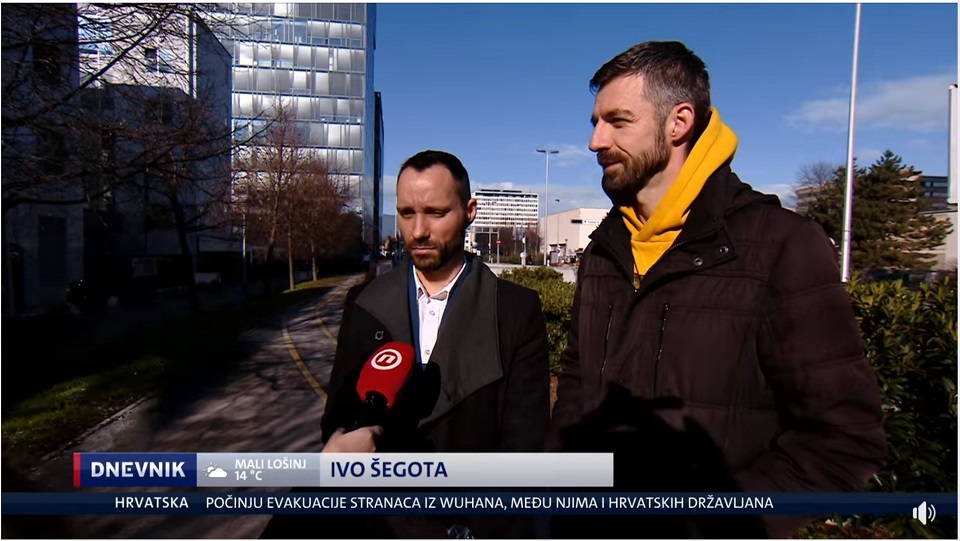
Gay Life Partners Ivo Šegota and Mladen Kožić in January after second foster care rejection. | Nova TV
Administrative Court Decision Did Not Influence Constitutional Court Decision
“The Constitutional Court has been reviewing this law for several months and the decision of the Administrative Court in no way influenced the decision of the Constitutional Court. But we have indicated that courts and administrative bodies are obliged to act in accordance with the Constitution and international regulations and must interpret laws so that no social group is discriminated against,” added Šeparović.
Regarding the Kožić-Šegota case, he pointed out that the Social Welfare Center should have acted on the decision of the Administrative Court which allowed the couple to be foster parents without this Constitutional Court decision. However, the Constitutional Court decision further obligates them to honor the lower court’s decision, and notes that this same-sex couple must not be discriminated against and that they can be foster parents on the same terms as anyone else who meets the legal requirements.
Ivo Šegota and Mladen Kožić, who are gay life partners, applied to the Social Welfare Center to become foster parents three years ago. After rejecting their application, the center explained that the couple cannot foster children because the law does not allow them to do so as life partners. Last December, the Administrative Court handed down a historic verdict which stated that life partners could be foster parents. However, their request was rejected again by the Social Welfare Center in January.
The President of the Constitutional Court recalls that, under the Constitutional Act of the Constitutional Court, Constitutional decisions must be enforced, and the government is obliged to ensure compliance.
“The point of this decision is that opportunity to provide foster care service must be given to everyone under the same conditions, regardless of whether the potential foster parents are of same-sex orientation. This does not mean that they are privileged, but their foster care must be allowed if they meet the legal requirements,” explained Šeparović.
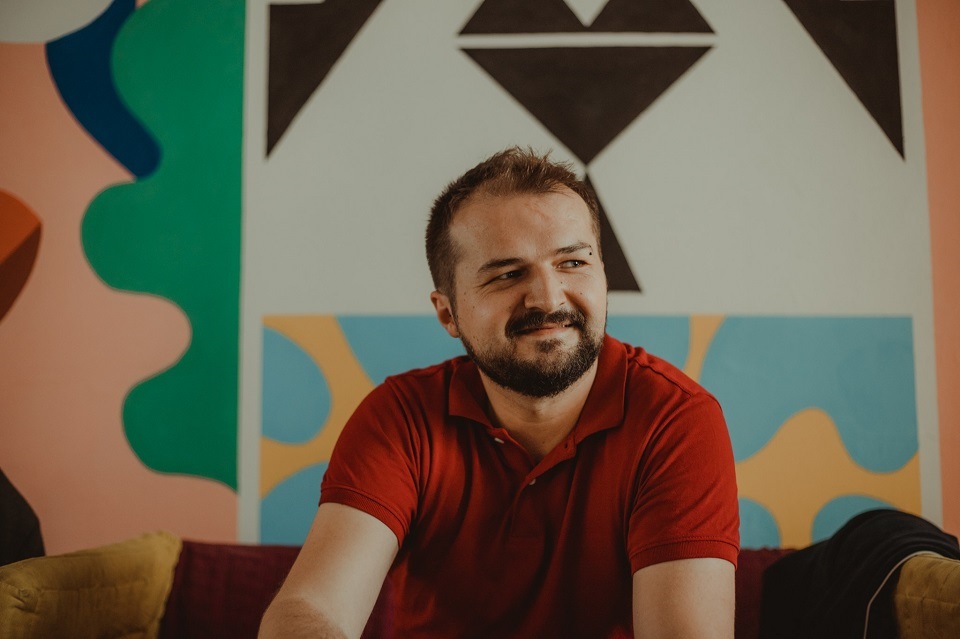
Daniel Martinović | Coordinator for Dugine obitelji (Rainbow Families)
Dugine Obitelji (Rainbow Families) Official Statement
Daniel Martinović, Coordinator at Dugine obitelji (Rainbow Families), released the following statement:
“Today's Constitutional Court decision states that the Foster Care Act must be interpreted to include life partners as equals as other foster parents, and that this is the only correct interpretation of the act.”
“The decision recognizes and prevents discrimination against life partners in the future and does what politicians in Croatia have not accomplished for years. This is a positive leap forward for the equality for all citizens of the Republic of Croatia, regardless of their sexual orientation or gender identity.”
“The LGBT community has once again fought for its rights alone, persistently and together. Our courage and insistence on a fairer society can hopefully be a milestone for other marginalized groups in our society.”
Croatia Constitutional Court Decision Ends Three Year Court Battle
Information on the December 2019 court decision can be found here. Details about the Social Welfare Center’s January 2020 rejection of the couple’s second foster care application can be found here.
A history of the couple's efforts to become foster parents and information on the LGBT rights movement in Croatia can be found here.
To learn more about the efforts of Rainbow Families (Dugine obitelji), check out their website and Facebook page.
The Croatia Constitutional Court decision (in Croatian):
Odluka Ustavnog suda o udom... by Index.hr on Scribd
Croatia Gay Couple Foster Care Applicants: Country Full of Hypocrisy
A Croatia gay couple, who want to become foster parents, have a message for haters: “We are a country full of hypocrisy,” they point out in yesterday's interview with RTL Direkt. Ivo Šegota and Mladen Kožić, who are in a life partnership, applied to become foster parents in 2017. After passing extensive background checks, screening tests and obtaining their foster care certification, their application was rejected by the Social Welfare Center in Zagreb.
In December 2019, the Croatian Administrative Court handed down a decision which ordered the center to consider the couple’s foster parent application based on its merit only. However, the center refused to comply with the court’s decision and rejected their application again. Tatjana Brozić Perić, director of the Zagreb Social Welfare Center, now faces charges for refusing to implement the Administrative Court decision. Her conduct has also been condemned by members of the Croatian parliament.
Ivo Šegota and Mladen Kožić applied to the Social Welfare Center to become foster parents three years ago. After rejecting their application, the center explained that the couple cannot foster children because the law does not allow them to do so as life partners. Last December, the Administrative Court handed down a historic verdict which stated that life partners could be foster parents. However, their request was rejected again by the Social Welfare Center in January.
Croatia Law: Gay Couple Could Be Foster Parents, But Not as Life Partners
Ivo Šegota and Mladen Kožić, life partners who hope to become the first Croatian gay foster parents, were guests of Mojmira Pastorčić/RTL Direkt on January 28, 2020. The craziest thing of all is that if they were single instead of life partners, they could have easily fostered a child.
"That is the biggest paradox. If I had applied alone, I would not be questioned and would be welcomed at the center, I am at an ideal age, live in an urban environment, am highly educated and financially comfortable. In other words, I am in an ideal category for foster care applicants," Ivo noted.
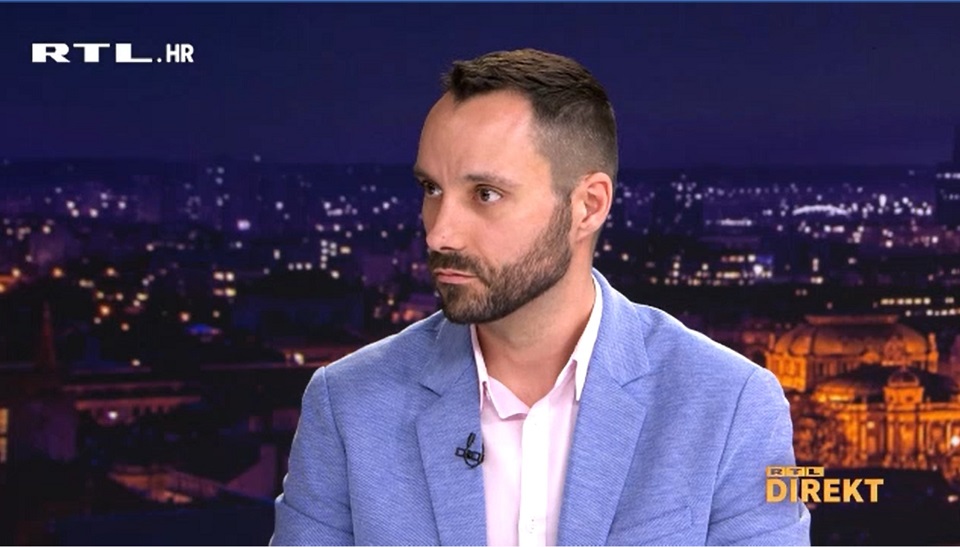
Ivo Šegota | RTL Direkt
At Christmas they were given a "gift" by the Administrative Court, but the couple began celebrating too soon.
Director Zagreb Social Welfare Center Won’t Implement Court Decision
A few days ago, a decision was made by the Social Welfare Center, in which the director, Brozić Perić, stated that she would refuse to acknowledge the court decision because she did not want to implement it. Both Mladen and Ivo will submit a complaint to the Ministry of Demography, and they are confident that it won't repeat the center’s absurd behavior and will hand down a valid legal decision.
"We have been waiting for a long time and hope that as soon as we file our complaint, the Ministry (of Demography) will react promptly in accordance with the laws and the decision of the Administrative Court," Ivo says.
They would be the first gay couple to foster a child, but there are already several same-sex couples who have children in Croatia.
Croatia Same Sex Couples with Children Doing Well
"We don't have official statistics, but we hang out with a lot of these families. Some have children who are already grown up, but recently we've had a little 'baby boom'. Such families have had much more positive experiences than one might expect. There are families from every part of Croatia, and everything is working out very well for them. Professionals, who deal with these children in kindergartens and schools, and neighbors, generally view everyone as human beings first. Especially when it comes to a child, few are willing to act to the detriment of a child," Mladen said.
Croatia Public Reactions Overwhelmingly Positive
By all accounts, they have taken on a difficult role. "When this all began, it was not our intention to make public appearances, but immediately we realized that the saying 'When, if not now and who, if not me' could easily apply to us as well. The narrative in Croatia will not go forward unless we make public appearances and fight for our rights because our institutions have been silent or have rejected us," Ivo revealed.
The reactions they receive are mostly positive, which is surprising. People approach them throughout the day, and they also have the support of family, employers and even strangers. The pair are convinced that it is time for same-sex couples in Croatia to be allowed to adopt children.
Croatia In Company with Moldova Regarding Same Sex Foster Parenting
"Croatia is currently in company with Belarus and Moldova on this issue. The question is whether we want to be in company with them or with Spain, Austria, Germany, Great Britain. We are currently heading the EU Presidency and are proud that we are the heart of Europe. So why don't we assume a European stance regarding this issue as well? I am somewhat convinced that we are ready. There has been a huge shift toward positive comments in just one year, which is why we are glad that we have decided to make our efforts public," said Mladen.
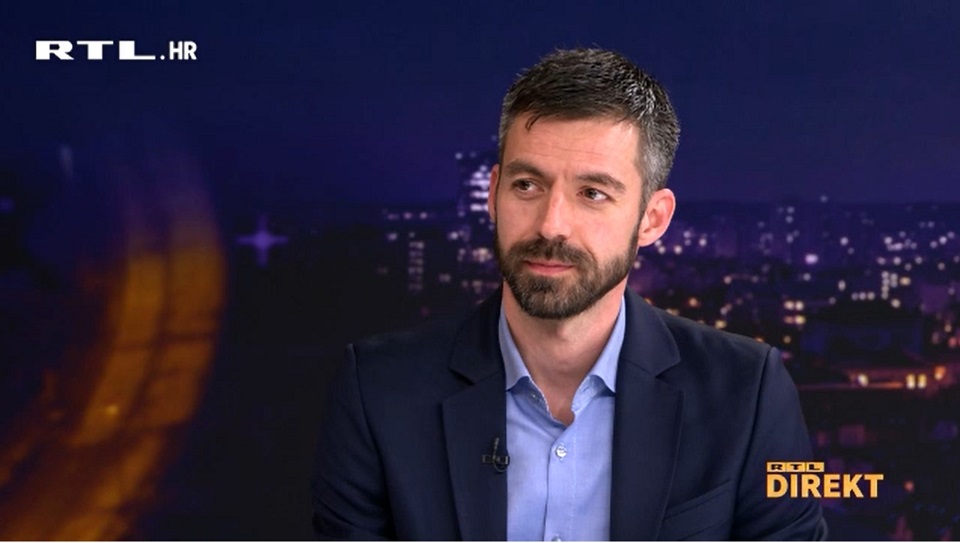
Mladen Kožić | RTL Direkt
Some are saying that it is not necessary to experiment, but Ivo has a counterproposal for them.
Over 1000 Children in Croatian Orphanages: Shortage of Foster Parents
"We are talking about a thousand or more children who are spending their childhood in orphanages. Let’s see our opponents foster two or three children, which is as many children as we would like to foster, and we could solve all our problems in Croatia. There would not be any children left for us to foster, and everyone would be happy, except for the two of us, perhaps. "We are a country full of hypocrisy, and we don't see those who voice the loudest opposition coming down to the (Social Welfare) Center (to become foster parents). And we have a chronic shortage of foster parents in Croatia," Ivo concluded.
Mojmira Pastorčić with Mladen Kožić and Ivo Šegota | RTL Direkt
Interview with Mladen Kožić | HRT
Information on the December 2019 court decision can be found here. Details about the Social Welfare Center’s rejection of the couple’s second foster care application can be found here.
A history of the couple's efforts to become foster parents and information on the LGBT rights movement in Croatia can be found here.
To learn more about the efforts of Rainbow Families (Dugine obitelji), check out their website and Facebook page.
Croatia Gay Couple Foster Care Application Rejected: Court Decision Ignored
The Social Welfare Center in Zagreb again rejected the foster care application submitted by Ivo Šegota and Mladen Kožić, who are life partners in Croatia. By doing so, they have completely disregarded the Croatian Administrative Court's December 2019 binding judgment, which allowed the couple to become foster parents after a long two-year court battle.
UPDATE: Mladen Kožić and Ivo Šegota give interviews to RTL Direkt and HRT on January 28, 2020. More information here.
Couple Had Started Preparing Home for Children
“We're shocked. After the December verdict, we had started planning how we would prepare our home for children, and I had already announced to my boss that, as soon as children arrived, I would be taking a long-term unpaid leave. And then a decision from the center arrives stating that they will not respect the court's decision. For the first half hour I kept saying, "But how is this possible?" And then I reminded myself that this is another small obstacle that Ivo and I will have to overcome together. We’ll go forward patiently and continue learning and developing our parenting skills. Giving up is not an option,” said Mladen Kožić. He added that he will appeal this unexpected decision, which came with an even more unexpected explanation, with his partner. In fact, the decision literally states that "this body could not arrive at a decision that is based on the application of legal provisions but is based on the opinion of the court."
Šegota and Kožić applied to the center in 2017 with to become foster parents. The center began the procedure, the partners passed the required screening tests and received a positive assessment, which was followed by compulsory education for foster parents and obtained their license. But instead, the center suddenly informed them that "there are no legal prerequisites for initiating the licensing process because they are in a life partnership," and life partners are not expressly listed in the Foster Care Act as possible foster parents. However, singles, spouses and extra-marital partners are listed, as reported by Kristina Turčin/Jutarnji List on January 28, 2020. They couple submitted a complaint to the ministry, which confirmed the center’s decision, and then they initiated an administrative procedure.
Croatia Court December Decision: Couple Can Become Foster Parents
At the end of December, the Croatia Administrative Court issued a judgment that could no longer be appealed, annulling the earlier rulings, and returns the case to retrial. However, the judgment was more than clear. Total Croatia News reported this court decision on December 20, 2019.
“By a meaningful interpretation of the legal provisions in their interconnectedness, the foster family, in the court's view, may include the foster parent and his or her life partner. The legislator did not prescribe a specific sexual orientation anywhere, so it is not logical that a single person having the same sexual orientation as the plaintiffs would be issued a foster care license if he/she fulfills the legal requirements. In this case, the legal requirements (for providing foster care) were not even examined in case of the plaintiffs because of the belief that life partners cannot be foster parents,” the Croatia court ruling read.
“As the respondent deems that the defendant applied an exclusively formalistic or grammatical interpretation of the relevant provisions of the foster care law, without interconnecting them and interpreting them in accordance with their meaning and purpose; the first instance body (Social Welfare Center) will reopen the foster care application process and decide to grant permission solely on the merits of the plaintiff's request,” the judgment ordered.
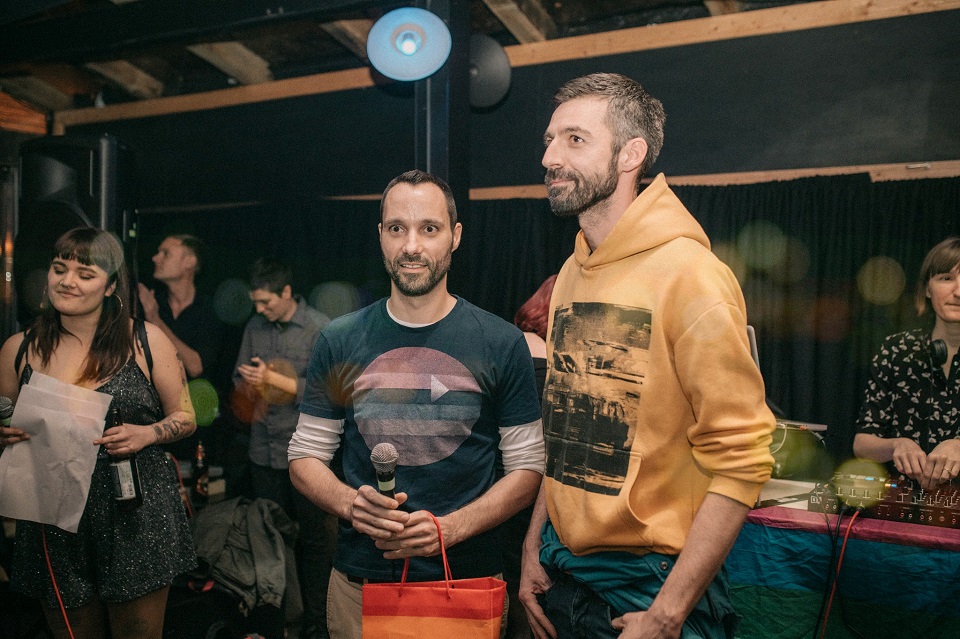
Ivo Šegota and Mladen Kožić | Facebook
Zagreb Social Welfare Center Denies Couple’s Application Again
However, the center issued the same decision as if there hadn’t been any judgments at all. Jutarnji List has not received an answer regarding the center’s decision because "CZSS (Social Welfare Center) Zagreb cannot provide details on proceedings in order to maintain official and professional secrets, respect the principles of secrecy, protect personal data and out of respect for privacy." The Ministry of Demography, Family, Youth and Social Policy would not comment and were surprised by Jutarnji List’s inquiry.
“Not only can we not comment on the decision of the center, but we are not aware of the fact that a new decision was made,” the ministry stated yesterday.
Zagreb Couple Must Appeal Decision Second Time
Šegota and Kožić must now go through the same procedure again, and an appeal of the center’s decision will be sent to the Croatia Ministry of Demography again.
“That's our next step. If the appeal is not upheld, we will return to the Administrative Court and ask that the court decide on its own and not return the proceedings to the beginning. These decisions by lower administrative bodies, which do not comply with binding judicial decisions, do not contribute to the rule of law. On the contrary, they insult the fundamental value of the constitutional order,” says lawyer Sanja Bezbradica Jelavić, who represents Šegota and Kožić.
“State institutions should adhere to court decisions,” says Gender Equality Ombudsperson Višnja Ljubičić.
Đuro Sessa: 'The decision of the center is not illegal, but it must have strong reasoning.'
The Zagreb Social Welfare Center may, in principle, issue the same decision that was reached previously since the court annulled that previous decision and sent the entire proceeding for reconsideration, explains Djuro Sessa, the Chief Justice of the Croatia Supreme Court.
“The court ruled that the case was going back for retrial. The court had the opportunity to resolve the issue on its own; not to seek a retrial but to replace the decision of the Social Welfare Center with its decision instead. The court could have decided to accept that the plaintiff's request, but they did not do so. Therefore, the center could arrive at the same decision, but the rationale for the decision should have been far more thorough,” Sessa adds.
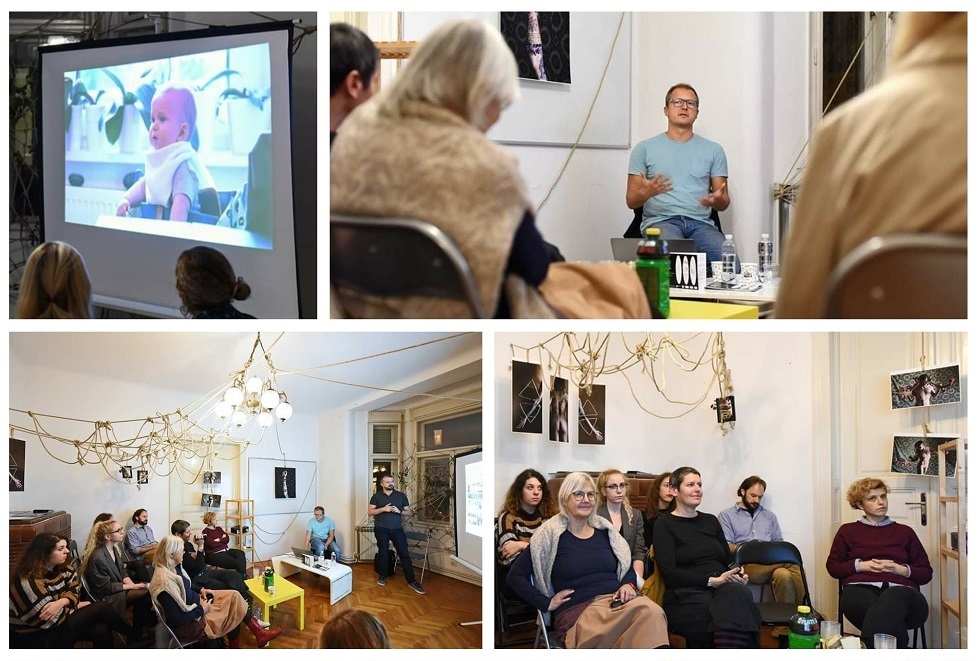
Rainbow Families | Facebook
Croatia Based 'Rainbow Families' Releases Statement
Rainbow Families (Dugine obitelji), which brings together LGBTI parents and those who wish to become parents in Croatia, released a statement today. It is printed below in full.
“It is unacceptable that the rule of law does not function in Croatia, which currently holds the EU Presidency and that court judgments are not respected.”
“The Administrative Court ruled in December 2019 that Ivo Šegota and Mladen Kožić, life partners who wish to become foster parents, have full rights in their intent. The ruling also indicated that they must not be discriminated against in these proceedings. The Social Welfare Center in Zagreb disregarded the court judgment and again rejected the foster application submitted by Mladen and Ivo. Rainbow Families, which brings together LGBTI parents and those who wish to become parents, consider the center’s actions outrageous. The center is acting as if the Administrative Court's judgment does not exist.”
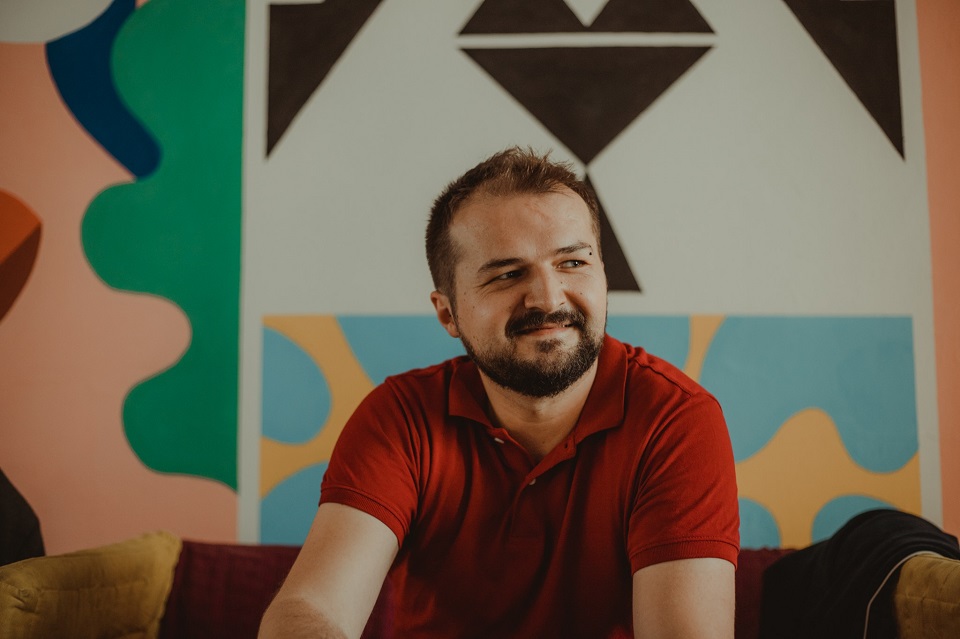
Daniel Martinović | Rainbow Families
“’This situation was already unbelievable, and it would be ridiculous if it weren’t so sad. The December 2019 decision of Administrative Court gave all of us, who believe in equality and respect for human rights, hope that there is a better future for our society. Since then, we have received an incredible number of messages of support regarding the December court verdict confirming our members, Ivo and Mladen, have the right to become foster parents. People have been stopping them on the road and congratulating them. And now we must witness this reckless, unthinkable, and more importantly, illegal conduct of the Social Welfare Center. What would the Social Welfare Center look like if it ignored the court's decision, for example, and allowed an abusive parent access or information about a child?’” Daniel Martinović, coordinator of Rainbow Families, pointed out.
"Our politicians are constantly heaping praise on our country simply because it currently holds the Presidency of the Council of the European Union. We are also told repeatedly about what a great honor it is for all of us, how proud we can all be of Croatia, how it is proof that we stand side by side with other EU countries. It hasn’t not even been a month since that famous presidency began, and we already have countless examples of where that all falls into the water. We consider this the worst example so far because it shows that institutions in this country do not respect the rule of law or court judgments, which is unthinkable in countries like Germany, Belgium or France."
"Life partners Ivo and Mladen will appeal to the Croatia Ministry of Demography regarding the center’s decision. If the ministry does not accept that appeal, they will go back to the Administrative Court and ask the court to make its own decision. Judging by the first ruling of the Administrative Court, they are fully entitled to become potential foster parents, and legal experts are already warning of the problematic situation the center's decision (last week) will create."
"Basically, in the first decision, the center rejected Mladen and Ivo’s application. However, they did not correctly apply the legal provisions of the Republic of Croatia, and when they were corrected by the relevant court, which rendered a binding decision, they interpreted the court's judgment as 'an opinion' which is not binding, and thus refused to correct their own misinterpretation of the law."
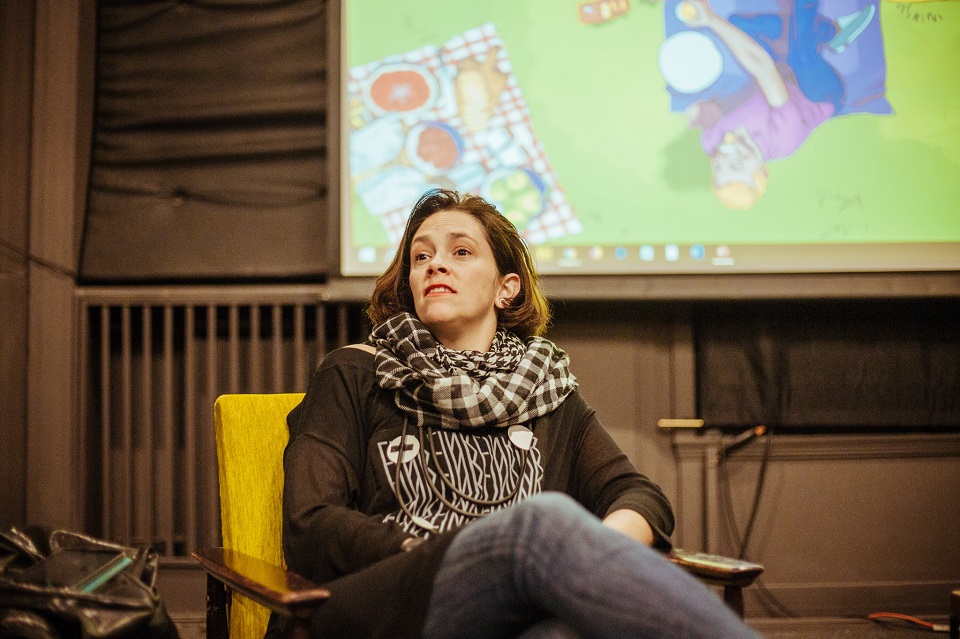
Zrinka Bojanić | Rainbow Families
"'The center’s disregard for the ruling of the Administrative Court causes great legal uncertainty and is harmful LGBTI citizens who are protected by several Croatian laws and European case laws. The judgment clearly instructed the center to decide on the merits of the plaintiffs' request, but they rejected that request, which is contrary to the judgment. They have demonstrated that they do not want to act on the couple’s request to become foster parents, which they submitted back in 2017. If this case is brought before the European Court of Human Rights, there is a very good chance that Croatia will again be forced to respect all its citizens equally and grant them equal rights on equal terms,'" explained attorney Zrinka Bojanić, an associate of Rainbow Families.
Mladen Kožić and Ivo Šegota | Press Conference | December 21, 2019
A history of the couple's efforts to become foster parents and information on the LGBT rights movement in Croatia can be found here.
UPDATE: Mladen Kožić and Ivo Šegota give interviews to RTL Direkt and HRT on January 28, 2020. More information here.


